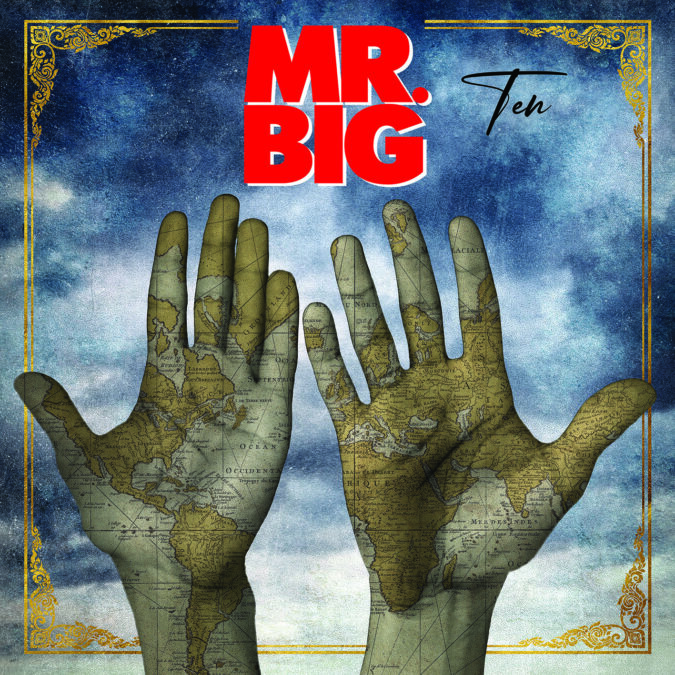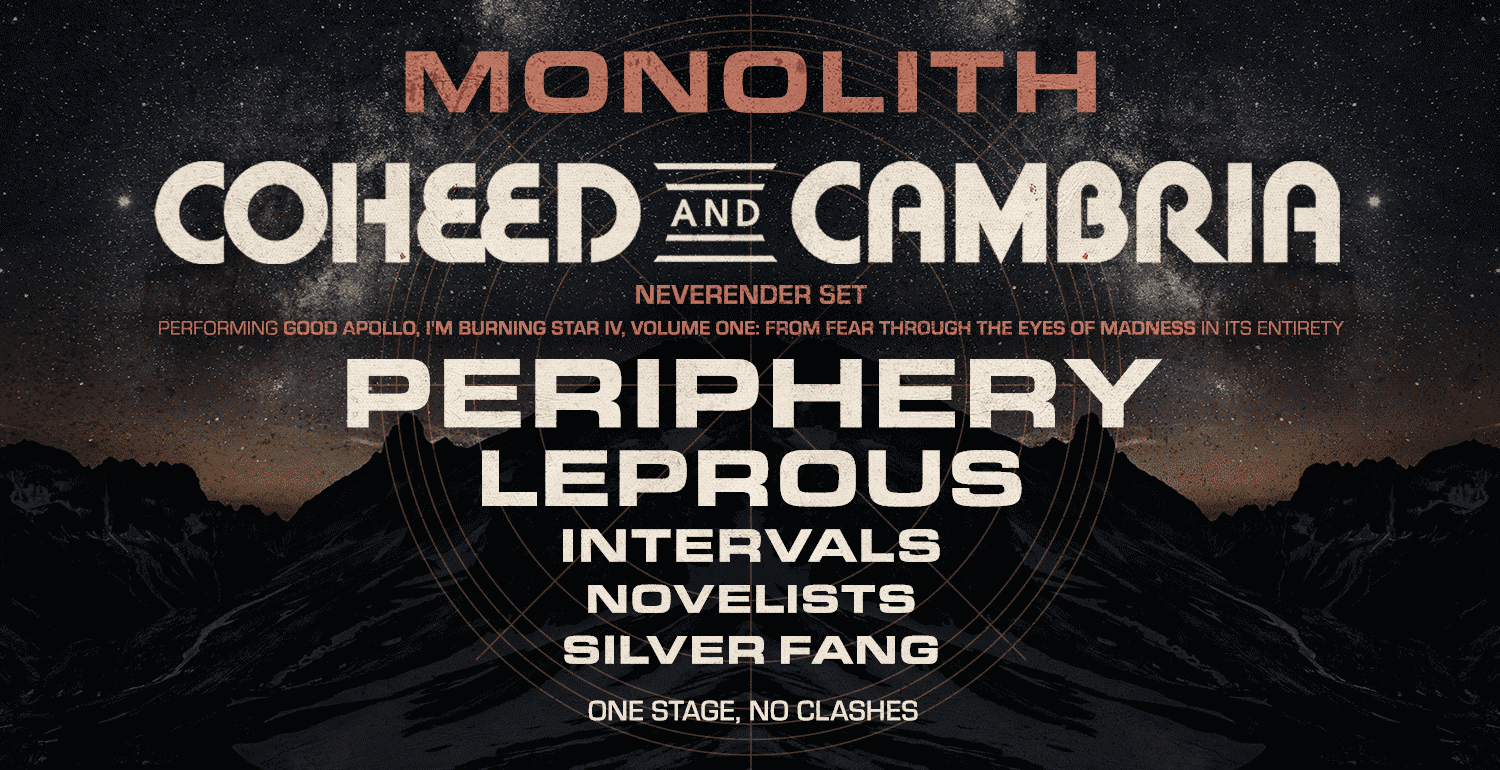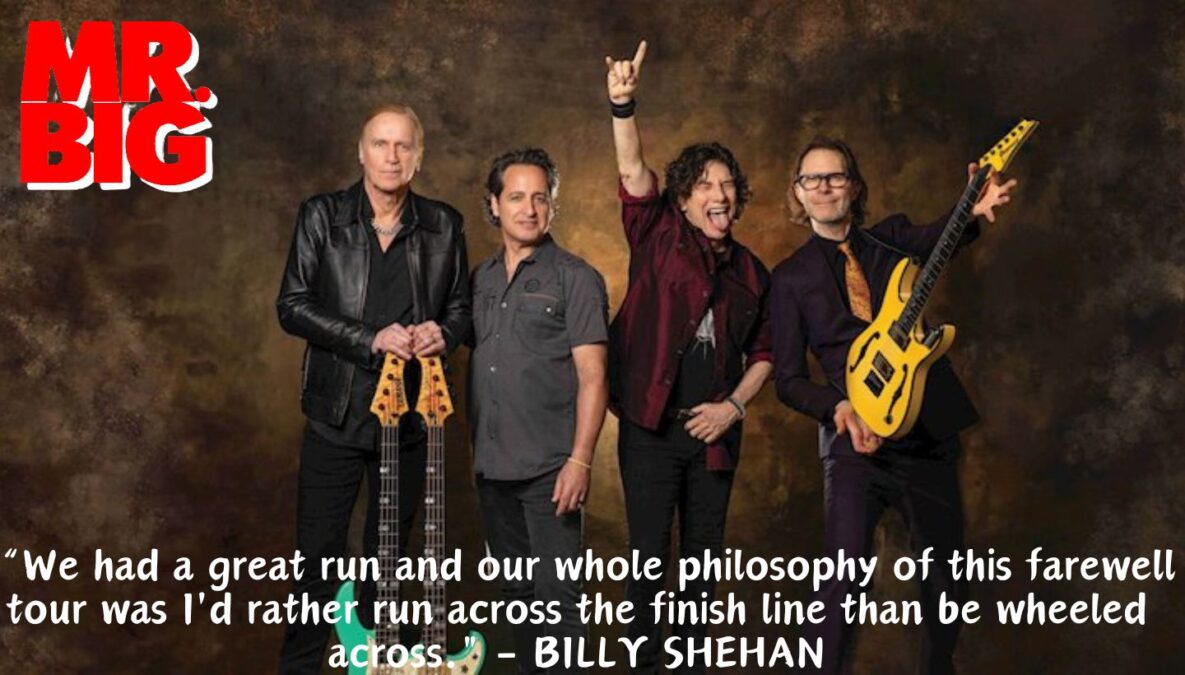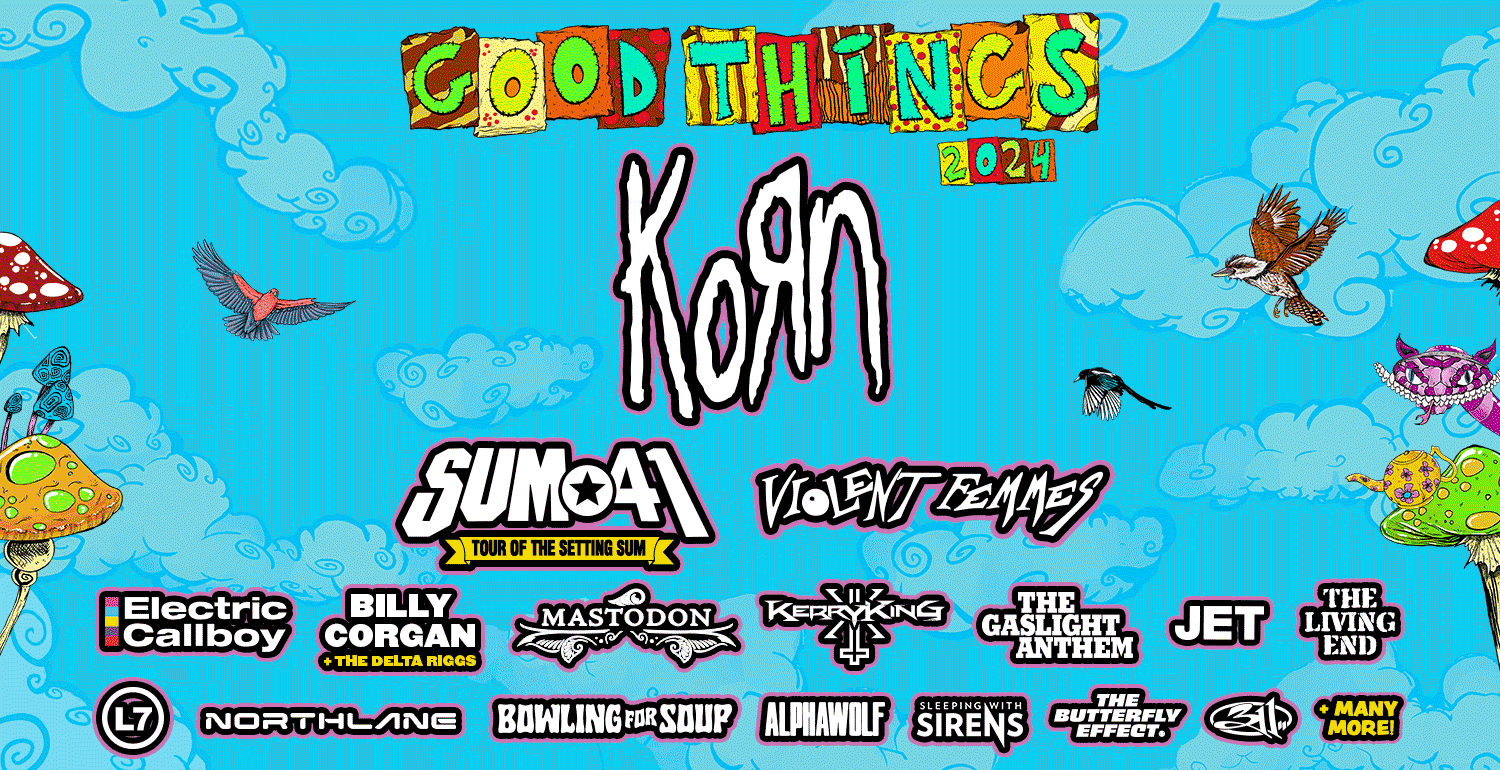“You don’t just sit around and wait for inspiration. I think that’s the biggest mistake people make.”
Billy Sheehan
Mr. Big have been captivating music lovers since their inception in 1988 with an irresistible blending of rock and blues music that is as infectious as it is beautiful to hear.
After releasing their self-titled debut album in 1989, Mr. Big – (vocalist Eric Martin, guitarist Paul Gilbert and bassist Billy Sheehan) achieved universal breakthrough success with the follow-up Lean Into It, an album that spawned the smash single To Be With You that set Mr. Big on a collision course with destiny that has continued unabated ever since.
A combination of musical brilliance, integrity and genuine love for their craft has allowed Mr. Big to perform for over three decades, but, sadly, all good things must come to an end and for Mr. Big that ending is delivered in the form of The Big Finish touring extravaganza that has wound its way around the world at select destinations from last year, winding up – at this stage – in Romania on August 27.
But in true Mr. Big style, the band was not content to leave their fans with only the memories of their final live performances, but also announced their tenth studio album – appropriately named Ten – would be unleashed with a strong nod to the entire history of the band in a musical farewell that promises an eternal gateway into the sonic sensibilities of a band who may never be rivalled.
With the release of Ten rapidly approaching its global birth on July 12, HEAVY had the honour of sitting down for a one-on-one with founding member Billy Sheehan to talk about the album, Mr. Big’s legacy and more.
“It’s our 10th studio record,” Sheehan proudly affirmed. “There have been a lot of other records. The first time we played in Japan, we had a wonderful time. And they knew we wouldn’t be coming back until the next record – which was going to be a cycle that happens – so they wanted a live record. And we didn’t really have the facilities because we were on tour with Rush in America, and so the sound man took a DAT tape, a digital audio tape that they don’t have many more that cost $7.95, and put it in and hit record on our show with no multi-track, no fixes, no overdubs, no nothing. So our recording budget for the whole show was $7.95 (laughs). That tape became the first Raw Like Sushi. I think in Korea it’s sold like 350,000 units. I don’t know how many in Japan, but I hope we recouped our investment (laughs). But it was kind of cool that it was completely real and no fixes, no turning the audience up or any of those cheaters that you can do. So we’ve done a lot of records. And there’s a million bootlegs, too. There was a great bootleg store in Japan – I think they’re long gone now – selling CDs, and they had the most amazing set of bootlegs you could imagine. I got the Band of Gypsys, Jimi Hendrix demos and rehearsals. I got Genesis‘, The Lamb Lies Down on Broadway demos. It’s the most amazing thing, the Montrose first record, all the demos, Boston demos that led up to these iconic records. And so we’d go there after our show, and they’d already have our record with artwork for sale (laughs).”
We ask Sheehan to tell us more about Ten musically.
“We took a break on a tour and were able to go in and record,” he explained. “I was super busy and couldn’t make it for the writing sessions, so I came in and just played bass and that was kind of cool. I just could go, what do you got? Okay, maybe this will work and I would put a little bass line down. The songs were very together, but it was nice to be able to just come in and create a baseline that just came from nowhere, just from my first impression of how the song went. I didn’t have a lot of time to even rehearse the songs. So in a way, that was kind of good, too, because it was spontaneous and came right, I didn’t think it through. Thinking often… thinking will ruin a song pretty easily. And that happens with writing a lot. You just come up with a part and like it (but) the next day you think maybe we should hold on a second. Wait a minute. We had it. And now you’re changing your mind? So that was a cool way to approach it. I just went in and played bass, and we came up with some cool stuff.”
In the full interview, Billy discussed a range of topics related to music production and performance. He talked more about Ten and its significance as their 10th studio record. Billy provided a detailed account of the recording process for the singles Good Luck Trying and Up On You, emphasizing the value of spontaneity and avoiding overthinking when creating music.
The conversation also touched on the art of song arranging and hit songwriting techniques, exploring the concept of motifs, key changes, and song structures. We discussed the deliberate use of songwriting mechanisms to create hits and the intentional avoidance of radio-friendly song titles by bands like Led Zeppelin. Additionally, he explored the importance of live performances and spontaneity in music production, emphasizing the raw energy and genuine feel that it brings to recordings, plus heaps more.














